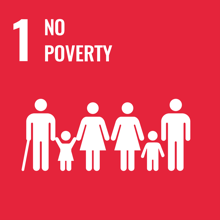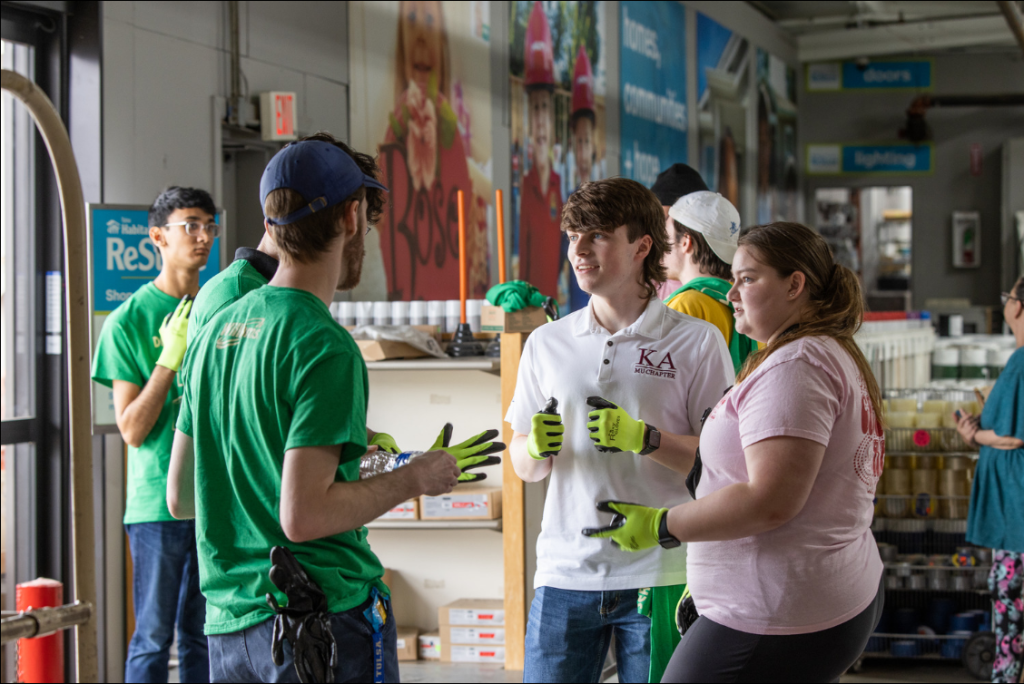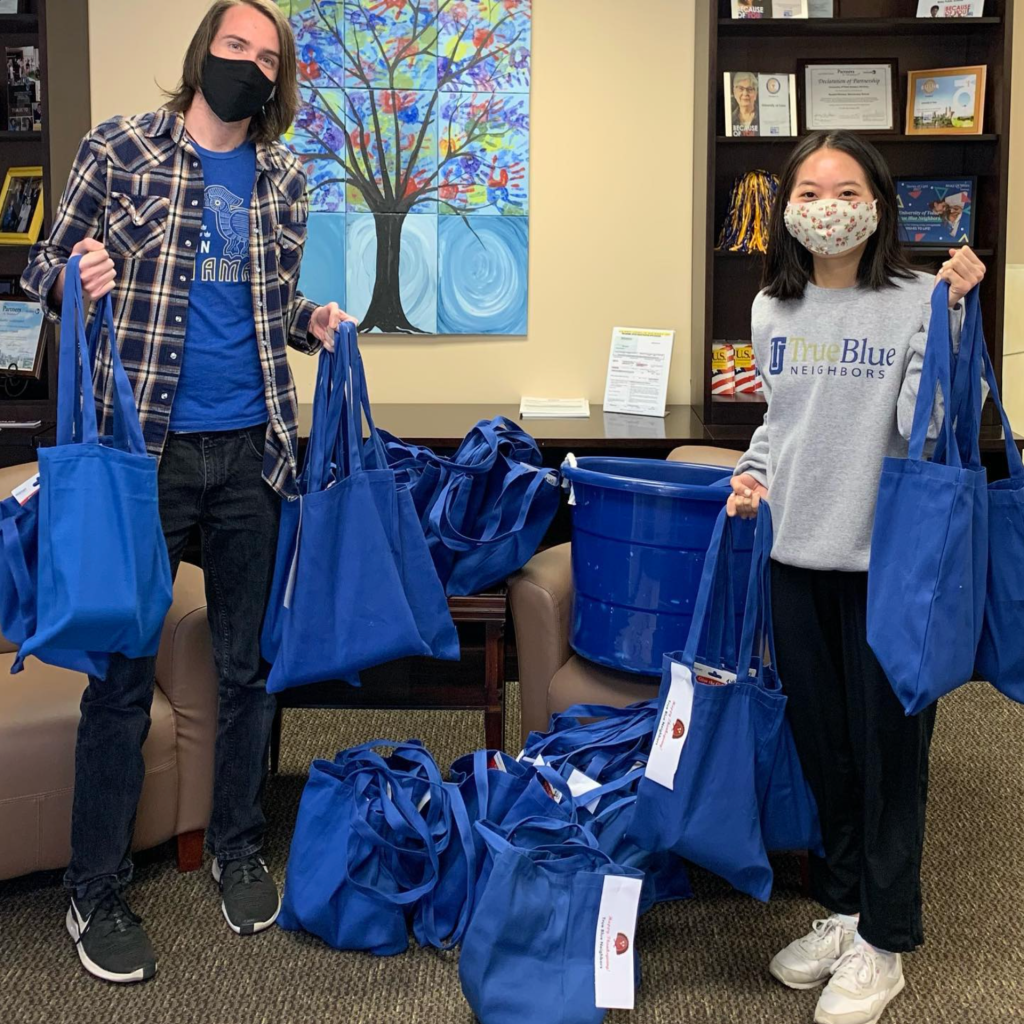
Addressing one of humanity’s most fundamental challenges, aiming to eradicate extreme poverty in all its forms by 2030.
This goal is dedicated to creating inclusive educational opportunities, fostering economic empowerment, and advancing policies and research that have a positive impact on communities, regions, and nations. These efforts extend beyond mere rhetoric, through actions and results that help drive progress towards a world where poverty is no longer a barrier to human potential and prosperity.
The University of Tulsa strives to contribute to Sustainable Development Goal 1 in several ways:
- Research and Data Analysis: Conduct research on the root causes of poverty, both locally and globally. This research can help identify effective strategies and policies for poverty reduction and inform decision-makers.
- Educational Initiatives: Offer educational programs and courses that focus on poverty alleviation, economic development, and social justice. This can empower students with the knowledge and skills to address poverty-related challenges.
- Community Engagement: Engage with the local community, especially in Tulsa, to address poverty-related issues. This can involve volunteering, partnerships with local nonprofits, and community service initiatives.
- Scholarships and Financial Aid: Provide scholarships and financial aid to students from low-income backgrounds. This helps ensure that talented individuals have access to quality education, regardless of their financial circumstances.


- Entrepreneurship and Job Creation: Support entrepreneurship and job creation initiatives, both within the university and in the surrounding community. By fostering economic opportunities, the university can contribute to poverty reduction.
- Partnerships: Collaborate with government agencies, NGOs, and businesses to create programs and initiatives aimed at poverty reduction. These partnerships can leverage resources and expertise to address poverty comprehensively.
- Research on Social Programs: Conduct research to evaluate the effectiveness of social programs and policies aimed at poverty reduction. This can help policymakers make evidence-based decisions.
- Advocacy and Awareness: TU can raise awareness about poverty-related issues through seminars, workshops, and public lectures. Advocacy efforts can also promote policies that reduce poverty.
It’s important to note that addressing poverty is a long-term endeavor that requires sustained commitment and collaboration. The specific actions taken by the University of Tulsa to satisfy SDG 1 may evolve over time and depend on the university’s resources and priorities.
SDG 1 Targets
Award financial aid to at least 90% of students who have need
100%
Enroll at least 20% of the incoming class from low-income families
26%
Graduate more than 40% of Pell Students in 4 years
51%
Research
5+
Total Scholars
24
Total Publications
News
- Compassionate leaders are committed to ensuring that all people are treated equitably and fairly. In the case of Sue Ann Arnall (B.S. ’77, J.D. ’80), that is precisely what she […]
- This fall, The University of Tulsa’s Office for Diversity, Equity & Inclusion is changing some roles and welcoming a few fresh faces. Dionne Lambert, former director of education and training, […]
- University of Tulsa junior Tulsi Patel has been named one of 40 female college students selected to receive a CREW Network Foundation Grant for the 2024-25 academic year. This award […]
- Diem “Betty” Lam, a media studies and film studies junior, was recently awarded the 2024 Rising Communicator Award from the Association for Women in Communication, joining a prestigious selection of […]
- Cherokee Nation and The University of Tulsa announce the launch of the second cohort of the TU Cherokee Women’s AcceleratHER Fellowship, empowered by the ayana Foundation. Designed to empower and […]
- The University of Tulsa is proud to announce that two recent Oxley College of Health & Natural Sciences alumnae have received prestigious National Science Foundation (NSF) Graduate Research Fellowship Program […]
- Senior Brittany Banh, who serves as president of the Student Alliance for Violence Education, is the 2024 recipient of The University of Tulsa’s Marcy Lawless Service Award.
- The James Beard Foundation has announced its 2024 Media Award nominees, and The University of Tulsa’s Switchyard magazine has received two nominations in the categories of Food Coverage in a […]
- Several years ago, Jennifer Youngberg and her husband were searching for an affordable speech therapist for their son, Oliver, when a friend told her about The University of Tulsa’s Mary […]
- From Sept. 15 to Oct. 15, we celebrate Hispanic Heritage Month – a time dedicated to recognizing and honoring the rich culture and countless contributions of the Latinx community. At […]